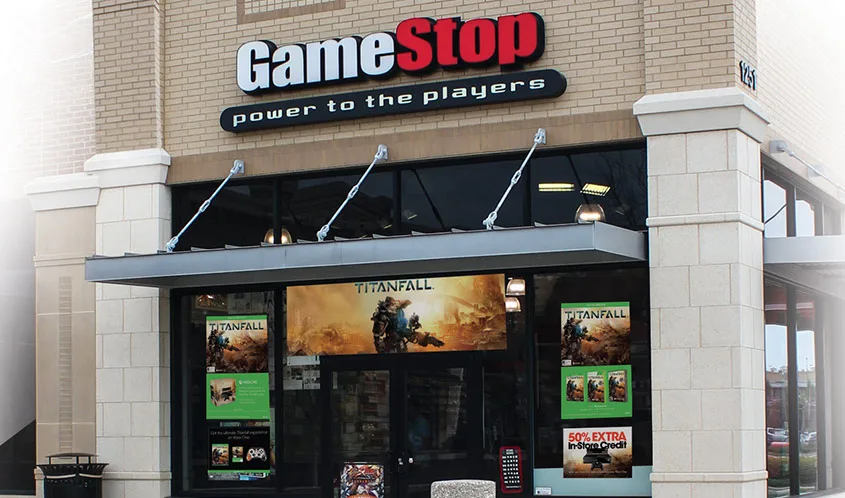Following a dismal holiday season in which its sales fell 27.5%, GameStop’s Q4 and full-year financials for 2019 have been revealed.
The Texas-based retailer’s sales declined by 26.1% in the fourth quarter, reflecting the plight of other retailers in what was an unusually challenging holiday season coupled with the continued slide of the video game industry overall. Comparable sales for the year fell 19.4% as the company continued spinning its wheels in an ongoing turnaround attempt.
CEO George Sherman, who joined the company a year ago, says that despite the expected downturn in sales ahead of the anticipated launch of the next-generation consoles later this year, the win for GameStop comes in the balance sheet.
“We delivered profitability, on an adjusted basis, ahead of our updated expectations, marking progress on our strategy to evolve our operating model and position GameStop for long-term profitable growth,” Sherman says. “Financially, we improved efficiency and effectiveness across our enterprise during the year fueling a 160 basis point expansion in gross margin and a $130 million reduction in adjusted SG&A. We strengthened the balance sheet, including significant reductions in inventory, accounts payable and debt. Operationally, we accelerated our digital capabilities by elevating our web platform and further optimizing our retail footprint through market de-densification while setting up a laboratory in our Tulsa market to test experiential elements in 12 stores with promising initial results.”
The test lab stores in Tulsa and the overall “de-densification” (store closure) plan will shape the future of GameStop’s retail experience and footprint.
On a call with investors, GameStop Executive Vice President and CFO Jim Bell spoke about the plans to reduce store count, particularly in markets with a significant overlap where store counts may have previously inflated due to past acquisitions.
“We will continue our work to de-densify our global store fleet and anticipate store closures to be equal to or more than [the] 320 net closures we saw in fiscal 2019 on a global basis,” Bell says. “Importantly, we want to emphasize that these store closures are a very specific and proactive part of our de-densification plan and they are not related to recent business trends.”
According to Sherman, March comp sales were up 2% this year prior to increased closures due to the spread of the novel coronavirus and COVID-19 in the U.S. The company recently faced significant backlash for its handling of the COVID-19 situation, particularly in its messaging pertaining to “essential retail” and a stance to stay open, which it has since backed down from. The company is now offering “Delivery@Door” service in locations that are still permitted to be open. Sherman says that any employees still at work are doing so on a voluntary basis, and that most stores are operating with just a single employee.
“We’re working with a volunteer team right now. So all of our team members — be they in stores, distribution centers, or refurb centers — are operating on a voluntary basis,” he says. “So it begins with a team member that wants to be there.”
With the future outlook in limbo due to COVID-19, GameStop suspended all future guidance at this time. Upon the return of somewhat normal business patterns, the company plans to continue with the transformation of its stores to “community hubs” as it’s been testing in Oklahoma.
GameStop recently added new members to its board of directors, including former Nintendo of America President and COO Reggie Fils-Aimé, former Walmart U.S. President and CEO Bill Simon, and Petsmart President and CEO J.K. Symancyk, formerly of Meijer.

